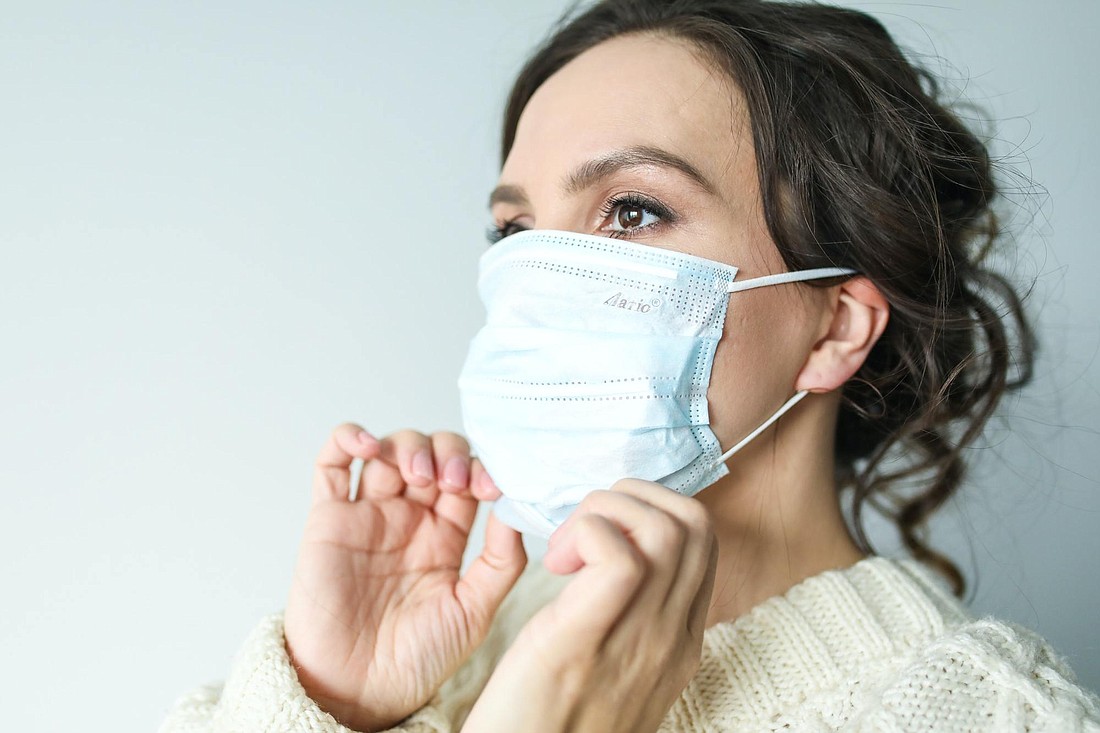- January 14, 2025
-
-
Loading

Loading

Throughout the coronavirus pandemic, bringing a mask to wear in public has become as commonplace as grabbing your keys, wallet and phone when you head out the door.
Masks have become important tools in preventing the spread of COVID-19, but constant mask-wearing also has side effects.
Having a mask on for long periods of time can irritate your skin and lead to imprints, irritation, rashes and acne breakouts — or “maskne,” the shortened term for mask acne. Maskne typically presents as spots, excessive dryness, and redness or inflammation around the mouth, cheeks and jawline.
According to the American Academy of Dermatology Association, acne is the most common skin condition in the United States and it affects up to 50 million Americans annually. But dermatologists said they are seeing maskne both in people who are prone and are not prone to acne.
In fact, research firm Dynata recently conducted a survey of 1,000 women regarding their experiences with acne during the COVID-19 pandemic. According to the results, 25% said they’ve experienced more acne since COVID-19 hit. For those women under 25, though, that number increases to 55%.
The heat from breathing — as well as occlusion — makes for ripe conditions to develop acne. When worn properly, masks hug the skin, cover the nose and mouth, and leave little room for air to enter. This can result in oil and sweat buildup. Masks also trap your breath and create a warm, humid environment.
“Any time anything rubs your face or holds in heat, it can cause acne breakouts,” said Dr. Joseph Shirer, an Ocoee-based dermatologist. “Other than prescription medications or not wearing the mask at all — which isn’t usually an option — I suggest wearing the softest mask that you can find, and don’t mess with it, which shouldn’t be done, anyway. The more you move it around and rub it on your face, it’s going to make it worse.”
And it’s not always just the mask, either. The stressors of going through a global pandemic add to the causing factors behind acne.
“The added stress, fear, frustration, lack of sleep and overall lifestyle changes that have come with the mandate to ‘stay home’ are causing many people to see an increase in acne flare-ups,” according to staff at Advanced Dermatology, which has offices in Windermere and MetroWest.
So, what can you do to cut down on the unwanted breakouts? Staff at Shirer’s office recommends taking breaks from your mask if and when you can to get some air to your face. If you choose to do this, only remove the mask when it’s safe to do so — such as at home or inside your car when you’re alone — and after washing your hands.
Proper skin care also is important in preventing and reducing the presence of acne and other skin irritations. The AAD recommends following a gentle skin-care routine and following the advice of a board-certified dermatologist to treat your skin depending on the problems you’re having.
Wash your face with a gentle, non-abrasive cleaner that doesn’t contain alcohol, as this will cause excessive dryness. The cleanser should be mild and fragrance-free. It’s important to wash your face two times a day and after sweating.
It’s also important to apply moisturizer immediately after washing your face. The AAD recommends using a moisturizer with ceramides, hyaluronic acid or dimethicone — the latter of which also can create a barrier that helps reduce irritated skin. Moisturizer should be applied before and after wearing a mask.